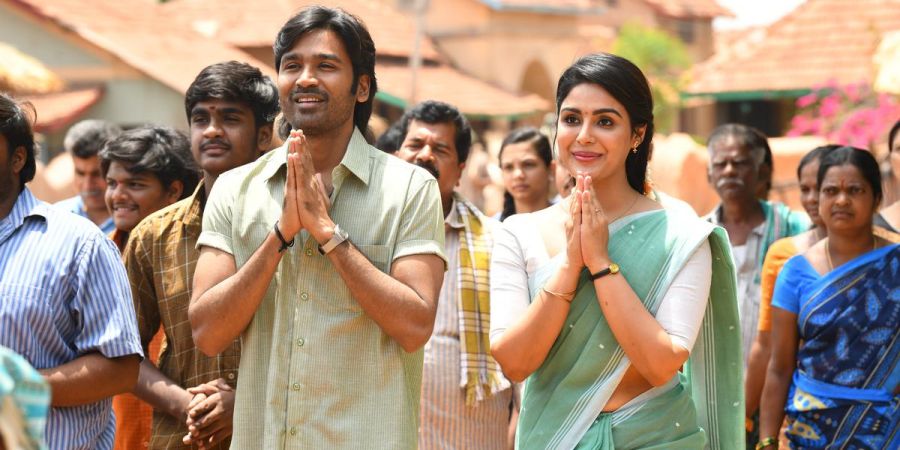

The protagonist of the film Vaathi is an assistant maths teacher who, in spite of the politics surrounding education in the 1990s, attempts to change poor kids. The movie has a strong message at its core, but the scripting is shallow and preachy23. Although the movie has average parts and one-dimensional characters, Dhanush tries to carry the whole thing4. The cinematography is excellent, while GV Prakash's background score is loud and only marginally effective3. The film explores the nation's educational system as well as the frequently explored conflict between public and private schools in Tamil cinema23. The part where Dhanush cleverly unites his students to teach them about the evils of caste inequality is the best sequence in the film.It doesn't matter how poorly a Dhanush movie performs; there will always be a touching father-son sequence. A Dhanush film is elevated by the sequences with a father and son, whether it be in the era of Thiruda Thirudi and Sullan, Polladhavan and VIP, or even Thanga Magan and Asuran. Balamurugan (Dhanush) questions his father (Aadukalam Naren) in Venky Atluri's Vaathi (Sir in Telugu), "Why is he making a big fuss out of not having the money to make his son an engineer?" Children are upset for a day if they don't get what they ask for, but the father respondsOf course, Balamurugan, or Bala sir as he is affectionately known, challenges his materialistic reality with his idealistic and somewhat simplistic one. In fact, it's entertaining to watch Samuthirakani ham maniacally, especially when one discovers that he is the Bala sir in Saattai and that his Dhayalan has become evil in Vaathi. Despite the fact that Bala's utopian worldview can be dismissed as impractical, it is heartening to have a protagonist with strong desires. Even in the most banal of situations, Vaathi displays this heart.
Vaathi, though, really takes us by surprise with her quick flash of creativity. Consider the first time Rajendran appears in theSamyuktha is wasted in a role that initially seems promising but ultimately offers her nothing. There is a sweet aside in which they address each other as "sir" and "madam" even when they are romantically attracted to one another, but overall, this storyline is disappointing, especially since the writer manages to conveniently remove her during the second act when Vaathi's circumstances aren't always favourable. The supporting cast is similarly disappointingly one-note and doesn't contribute anything unique.
Vaathi is a triumphant story about an underdog who battles against a system that is strongly biassed towards women, supported by GV Prakash's generally loud and fairly effective background score, whose songs are wisely utilised by Venky.
